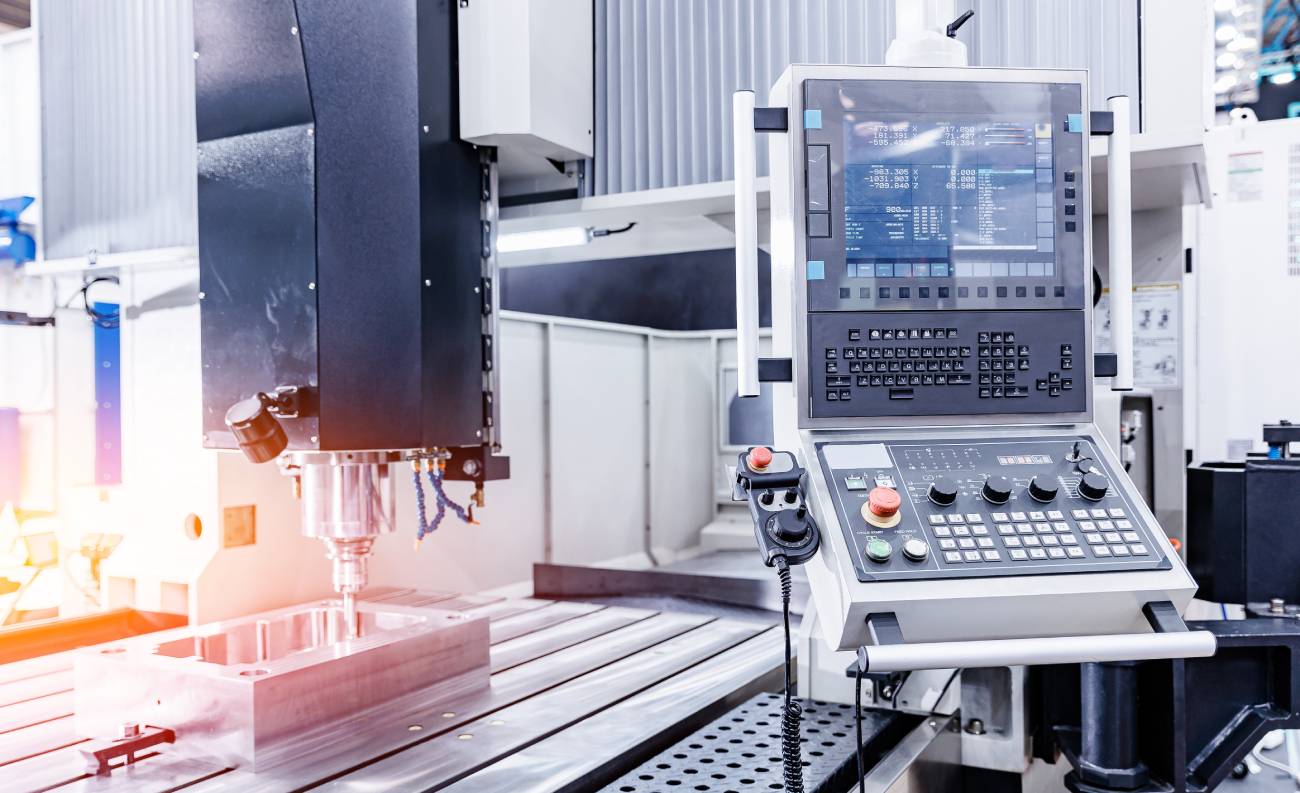How CNC Machines are Transforming Indian Manufacturing

As industries strive for greater efficiency and quality, the adoption of Computer Numerical Control (CNC) technology is becoming essential. This transformation is not just about upgrading equipment; it's about redefining how products are made, and businesses operate.
CNC (Computer Numerical Control) machines are revolutionizing the manufacturing landscape in India. As industries seek to improve efficiency and product quality, the adoption of CNC technology is becoming essential for staying competitive.
The growing use of CNC machines across various industries, including Aerospace, Automotive, Electronics, and even smaller manufacturing units, highlights the shift towards advanced manufacturing processes. These machines allow for higher production efficiency, superior quality, and the ability to produce complex and precise parts, making them indispensable in today’s fast-paced, globalized market.
Key Advantages of CNC Machines
Boosting Productivity
One of the most significant advantages of CNC machines is their ability to operate autonomously once programmed. Traditional manufacturing methods often require manual intervention at every step, which can slow down the production process. CNC machines, however, can run continuously without breaks, increasing output while maintaining consistent quality. This capability allows manufacturers to meet high demand without sacrificing precision or efficiency. In a country like India, where there is an ever-growing demand for goods, the speed and reliability of CNC machines are crucial in ensuring manufacturers stay competitive.
Ensuring Quality
The precision offered by CNC technology is another key benefit. Unlike manual methods, which are susceptible to human error, CNC machines are programmed to follow highly specific instructions, producing parts with exceptional accuracy. This is particularly crucial in industries like Aerospace and Automotive, where even minor deviations can lead to significant failures or safety issues. CNC machines deliver consistent results, ensuring that every product meets exact specifications. The result is improved product quality, fewer defects, and enhanced customer satisfaction, which is vital for gaining a competitive edge in the global market.
Cost Efficiency
While the initial investment in CNC technology can be substantial, the long-term benefits far outweigh the costs. By reducing the need for extensive manual labor, CNC machines lower operational costs and minimize human error. The efficiency gained from automation helps manufacturers achieve higher output without increasing labor costs. Also, the accuracy of CNC machines reduces the likelihood of defective parts, reducing waste and material costs. The cost savings gained through the use of CNC machines contribute to higher profitability, which is particularly important for businesses trying to navigate the competitive Indian market.
Improving Safety
Another significant benefit of CNC machines is their ability to improve workplace safety. Traditional manufacturing processes often require operators to work closely with heavy machinery, which can expose them to safety risks. CNC machines, however, can operate autonomously once set up, minimizing the need for human intervention on the shop floor. Fewer operators are required to oversee the machines, which reduces the potential for workplace accidents and injuries. This shift not only makes manufacturing safer but also improves worker morale and productivity, contributing to a more efficient work environment.
Flexibility in Production
CNC machines offer unmatched flexibility in production. One of the key features of CNC technology is the ability to reprogram the machines quickly to accommodate different tasks. This capability is essential for manufacturers who need to adapt to changing market demands or produce a variety of products without investing in multiple specialized machines. The flexibility of CNC machines enables businesses to pivot quickly, reducing downtime and improving overall production efficiency. For Indian manufacturers, this flexibility is especially important in an increasingly fast-changing market, where the ability to quickly scale production and customize products is a significant competitive advantage.
| Manufacturers who adopt CNC technology will be better equipped to compete in an increasingly globalized market, driving India’s manufacturing industry into the future. |
The Role of Government Initiatives
The Indian Government’s ‘Make in India’ initiative has been a catalyst in driving the adoption of CNC technology. Launched in 2014, the program aims to promote local manufacturing, reduce dependence on imports, and create jobs through the adoption of advanced technologies. By encouraging innovation and skill development, the initiative has helped create a favorable environment for businesses to leverage CNC technology. As manufacturers invest in CNC machines, they are not only improving efficiency but also contributing to the growth of India’s Manufacturing sector, making it more self-reliant and globally competitive.
The ‘Make in India’ initiative also supports small and medium-sized enterprises (SMEs) by providing access to cutting-edge technologies, such as CNC machines, that were once only available to large corporations. This democratization of technology has enabled a wide range of businesses to improve their manufacturing capabilities, contributing to the overall growth of the sector.
Future of CNC Machining in India
Looking ahead, the future of CNC machining in India appears promising. With advancements in smart technologies such as the Internet of Things (IoT), artificial intelligence, and data analytics, the capabilities of CNC machines are set to expand even further. These technologies will allow for real-time monitoring and predictive maintenance, ensuring that machines run efficiently and are less prone to unexpected breakdowns. Manufacturers will be able to collect and analyze data on machine performance, allowing them to optimize production processes and reduce costs even further.
The demand for smaller, more intricate components continues to rise, especially in industries like Electronics and Aerospace. As products become more complex, the need for precision machining will only grow. CNC machines, with their unparalleled accuracy and versatility, are well-suited to meet this demand. Indian manufacturers are well-positioned to take advantage of these emerging trends and stay ahead of the competition by embracing the latest CNC technology.
CNC machines are not just tools for modernizing the manufacturing process—they are catalysts for change in India’s Manufacturing sector. By enhancing productivity, ensuring high-quality standards, reducing operational costs, and improving workplace safety, CNC machines are reshaping how products are made and how businesses operate. With Government initiatives like ‘Make in India’ providing a favorable environment for innovation, the potential for growth and technological advancement in the Indian Manufacturing sector is vast. Manufacturers who adopt CNC technology will be better equipped to compete in an increasingly globalized market, driving India’s Manufacturing industry into the future.
 |
Masaya Takeda |




 Facebook
Facebook.png) Twitter
Twitter Linkedin
Linkedin Subscribe
Subscribe